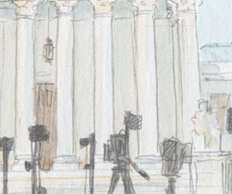Australia High Court Delivers Major Blow to Free Speech In Defamation Ruling
JonathanTurley
SEPTEMBER 9, 2021
The Supreme Court ruled that tort law could not be used to overcome First Amendment protections for free speech or the free press. compensatory damages and $300,000.00 punitive damages. Congress recognized the threat that tort-based lawsuits pose to freedom of speech in the new and burgeoning Internet medium.














Let's personalize your content